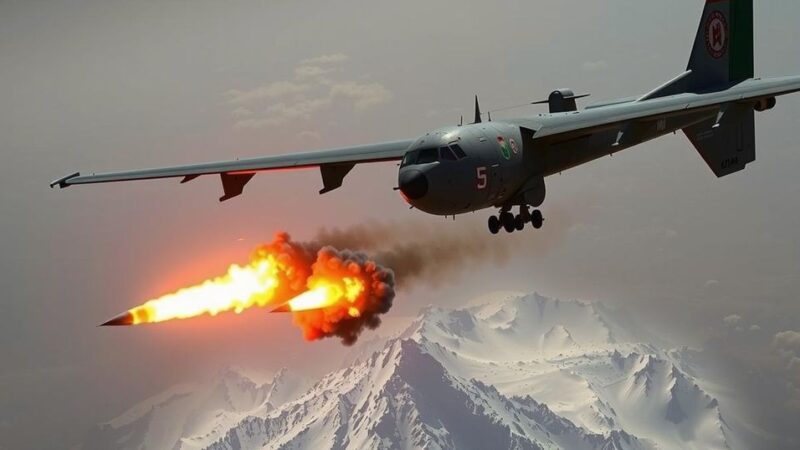On Saturday, Israel launched airstrikes against Iranian military sites in retaliation for a missile barrage from Iran earlier this month. The strikes risk escalating hostilities in the Middle East, where conflicts involving Iranian-backed groups are ongoing. While explosions were reported in Tehran, initial assessments of damage or casualties remain unclear. This incident highlights the deepening rivalry between Israel and Iran, amidst heightened regional tensions.
In a significant escalation of hostilities in the Middle East, Israel conducted a series of airstrikes against military targets in Iran on Saturday, marking a response to a recent missile attack executed by the Iranian government. This retaliatory action comes in the wake of Iran’s launch of ballistic missiles towards Israel on October 1, which resulted in minimal damage but heightened tensions between the two nations. Explosions were reported in Tehran, though information regarding casualties and damage has yet to be confirmed. This military strike raises alarm about the potential for a wider conflict between Israel and Iran, especially given the ongoing violence instigated by Iran-backed militant groups such as Hezbollah and Hamas, who are currently engaged in combat with Israel. Israeli officials announced that the airstrikes specifically targeted facilities involved in missile manufacturing, in addition to surface-to-air missile sites. Rear Admiral Daniel Hagari, an Israeli military spokesperson, articulated that Israel, like any sovereign state, has both the right and obligation to defend itself against hostile actions directed from Iranian soil. While initial expectations suggested that Israel may aim for nuclear-related sites in retaliation, it appears that strategic choices were made to avoid further escalation, as reassurances from the Biden administration had led to a more restrained approach. Iran’s media acknowledged the explosions without providing extensive details, a move interpreted as an attempt to downplay the severity of the attacks. On the ground in Iran, residents reported hearing multiple explosions, with some describing visible defense fire illuminating the sky. Following the strikes, Iran implemented a temporary closure of its airspace, impacting commercial flights over the region. The U.S. administration has been closely monitoring the situation, having been briefed on the developments; however, officials noted that there was no direct American involvement in the operation. This recent military exchange underscores the dangerous dynamics of U.S.-Iranian relations, particularly as Iranian leaders have frequently labeled Israel as their primary adversary, due to its perceived threats to Iranian interests. Israel’s ongoing conflict with Hezbollah in Lebanon is part of a broader regional confrontation that threatens to draw in various international actors, including the United States. The complexities of the situation are further exacerbated by ongoing violence in Gaza, where the conflict has resulted in significant casualties and a humanitarian crisis.
The longstanding enmity between Israel and Iran has intensified over recent months, particularly following major military confrontations involving Iranian-backed groups across the region. With Israel perceiving Iran as an existential threat, compounded by Iranian provocations including missile launches and support for militant groups, this recent strike marks a pivotal moment in the escalation of hostilities. The historical backdrop includes Israel’s prior engagements against Iran’s nuclear ambitions and incursions into Syria, leading to diplomatic tensions at multiple levels. Additionally, the domestic political pressures in Israel following severe incidents of violence, including the tragic October 7 attacks by Hamas, necessitate a robust military response, thereby complicating peace efforts and regional stability endeavors.
In summary, Israel’s recent airstrikes against Iran signify a marked escalation in their ongoing conflict, reflecting deep-seated tensions and the precarious nature of Middle Eastern geopolitics. The targeted attack aims to neutralize threats from Iranian missile capabilities while emphasizing Israel’s commitment to national security. However, this action carries significant risks of further entanglement in regional warfare, potentially invoking responses from Iran and its proxies, which could destabilize an already volatile landscape.
Original Source: www.wral.com







